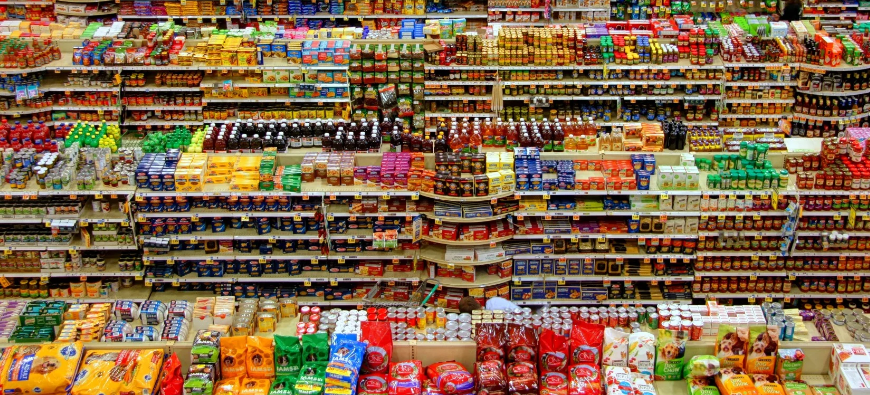What is Barrier Packaging?
Barrier packaging covers a broad spectrum of plastic materials that offer incredible protection to many different products, including food, drink, and much more. Manufacturers far and wide have long used this type of packaging to preserve sensitive goods that would easily be spoiled or contaminated by invasive exterior elements.
Barrier Packaging – What Exactly is It?
In the most general of terms, the word barrier in barrier packaging refers to coatings that are placed onto various substrates to help preserve and protect the items that are inside those materials. These coatings or additives to the plastic packaging work hard to keep harmful elements like oxygen, water, water vapor, aromas, light, grease, oils, and more away from your goods. This makes barrier packaging a great option for items that can be severely damaged by exterior contaminants. Overall, this means that barrier bags, barrier films, and other barrier materials are most commonly used for food packaging, while other sensitive goods make up a smaller, but not inconsequential, percentage.
What Consumers Want from Food Packaging
When customers seek products that are susceptible to spoilage, they have certain requirements in mind both consciously and subconsciously, which is especially true for edible items. Your buyers want to see the item that’s inside the packaging, so including at least one high-clarity window on your package is a necessity. Furthermore, today’s consumers frequently look for convenient, ready-to-eat food products. For that reason, your packaging needs to be easy to open, no matter what kind of material you utilize. Since barrier coatings are used on plastic, it’s simple to ensure that the end user can quickly and simply open the package and access their food.
Barrier Packaging Keeps the Bad Out
The most important element of barrier packaging, which can include barrier bags, barrier films, barrier labels, and more, is that it prevents contaminants from getting through. This is particularly important for edible goods, which can be quickly ruined by exterior factors. Anything from unwanted water or too much air exposure can result in spoiled goods that are unpleasant and unsafe for the consumer to eat. Not only does this harm your buyers, but it also leads to dangerous consequences for you as a manufacturer, which we’ll highlight in just a bit.
Barrier Bags and Films Keep the Good In
In most situations, it is just as necessary to keep the enjoyable aspects of food products inside the packaging as it is to keep the bad things out. Elements like a great taste, pleasing smells, and the ideal texture are what make eating something delicious such an enjoyable experience. The additives in barrier packaging do an excellent job of maintaining the positives of food, including taste, aroma, and more, so that anyone who consumes it will be left feeling great (and hopefully full!).
More Than Just Food Products
While barrier packaging materials are most frequently used to safeguard our food, that’s not all they’re capable of protecting. There are plenty of non-edible goods that are also susceptible to external contaminants. These can include anything from laundry detergent and personal care products like lotions and shampoos to automotive engine additives and more. Just imagine how disappointed you’d be if you received any one of those products and it was the wrong consistency or emitted an aroma that clearly indicated something was off. You wouldn’t be able to use that item without fear of damage to your clothes, your vehicle, or even yourself. Thankfully, barrier bags and films can eliminate these problems by stopping contaminants from entering the package.
What Can Occur Without Barrier Packaging
It’s already more than apparent that your products can be significantly and irreparably harmed without the extra protection of barrier packaging. However, it’s also important to examine the consequences that can occur to your company as a whole when you skip this step. Let’s say you decide not to use barrier bags or films to package your food. As a result, these edible products are spoiled by too much oxygen exposure or contaminated by water vapors. This could quickly lead to your company needing to issue an expensive recall of any and all products impacted. Recalls are incredibly costly no matter what, but also have an even bigger negative effect on your brand image. If customers don’t feel that they can trust you to provide safe, high-quality products, they won’t buy from you again. Even if barrier packaging costs more upfront, it protects your bottom line and company reputation in the long run.
The Benefits of Barrier Packaging
The immense advantages of using barrier bags, barrier films, and other barrier packaging products are clear. It provides the extra protection your sensitive products need most, which means you save money and maintain a great brand image in the long term.

